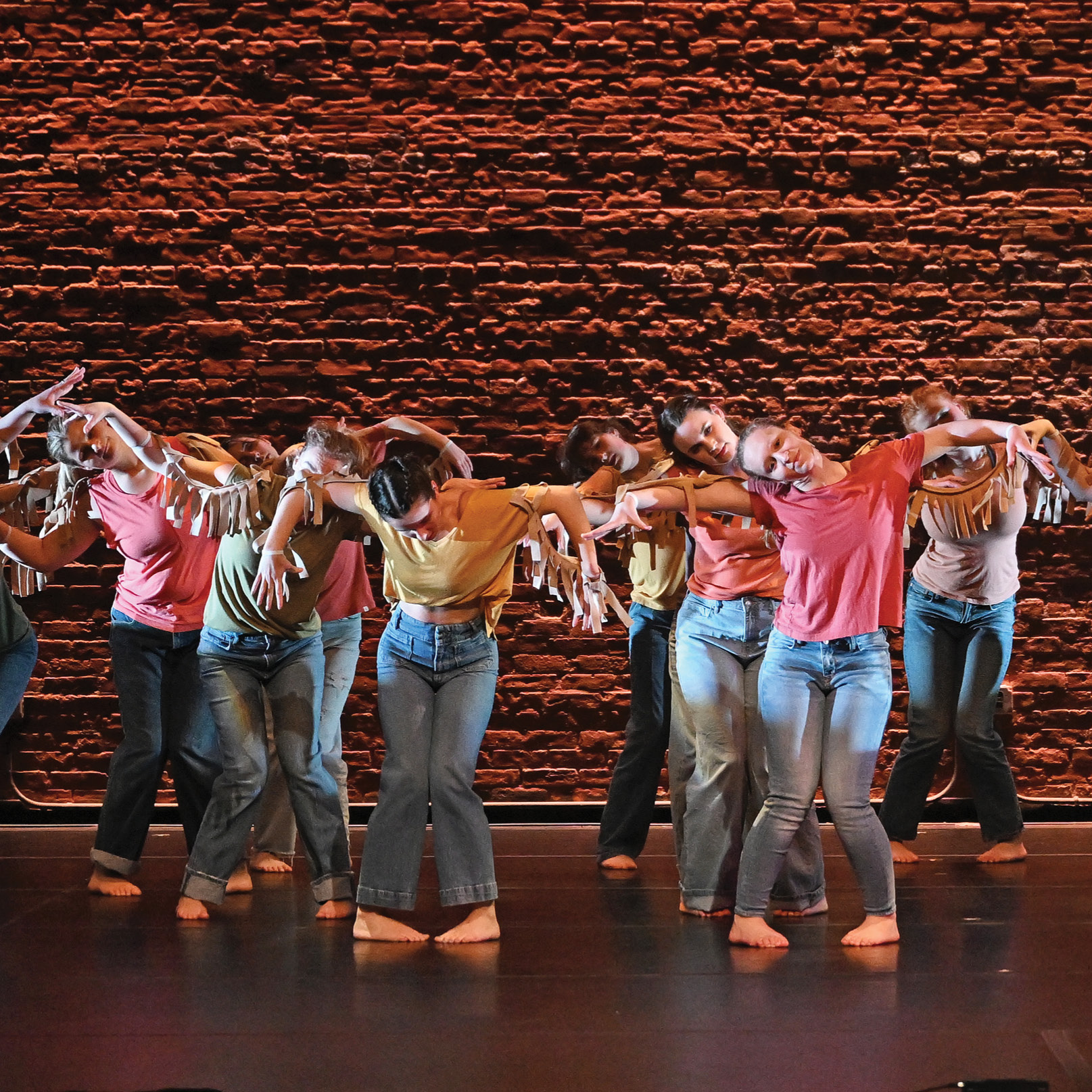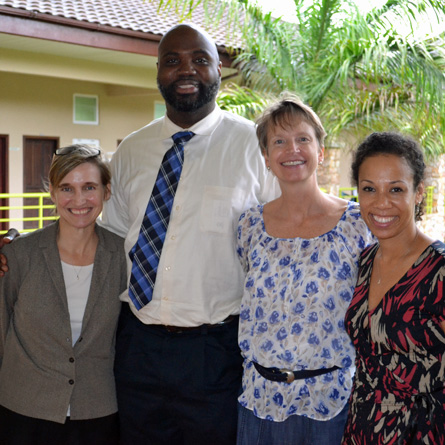
'Caught hold of my soul'
A world away, Suzanne Fox Buchele ’85 is lending her higher education experience to an innovative liberal arts college in Ghana, which may soon partner with Connecticut College.

In October 2015, three members of the College faculty traveled to Ashesi University College in Berekuso, Ghana, to explore a potential partnership with the up-and-coming institution.
Unbeknownst to most, the College already had an interesting connection to Ashesi.
Suzanne Fox Buchele ’85 is the associate provost of Ashesi, as well as an associate professor of computer science. She was introduced to the school in 2006, when she earned a Fulbright to travel to Ghana while a professor at Southwestern University in Georgetown, Texas. What started as a “family adventure” turned into a fruitful relationship with Ashesi, one that brought Buchele back to the campus each summer to assist in special projects.
In 2014, with her children nearly done with college, Buchele and husband Steven made a permanent move to Berekuso. We recently caught up with her to discuss her move to Ghana and what it’s like to work at Ashesi.
What drew you to Ashesi while applying for your Fulbright?
We were looking for a family adventure in an English-speaking country. When I applied for the Fulbright, our children were 10, 13 and 14 years old. Ashesi was still quite new at the time. My husband had spent a year in Ghana as a child—his father taught for a year at the University of Ghana—and had fond memories of it. So, we said, “Why not?”
What made you move there permanently?
After we had been in Ghana for a few months, we realized that we were very happy there; the kids were settling in and enjoying the international school they were attending. During the Fulbright orientation, we were told there was a possibility of requesting a renewal of the appointment, so I applied and was granted a second year.
In that second year, I became acting dean of academic affairs and began to feel like a member of the Ashesi family. The school and its mission really caught hold of my soul. When the Fulbright expired, we felt like we were meant to be at Ashesi permanently, but the timing wasn’t right yet. We moved back to the U.S. until the doors opened for our return, when two of our three children had graduated college. We made the move in February 2014 and we’re sure we made the right decision.
How do Ashesi students compare to American students, or students you’ve taught before?
Ashesi students are just as capable as the American students I have taught, although there’s an obvious language barrier with some students. They are far more earnest and serious than American students. For some, the education they receive really is their only path out of poverty. In some cases, their entire family or villages have sacrificed for them to have this opportunity; some have tragic stories and situations that they live with. Academically, many students have only studied using memorization without actually understanding the material, so effective study skills for a critical-thinking, liberal arts education are often lacking.
How is the liberal arts different or the same from Ashesi to Connecticut College?
Ashesi is based on a liberal arts model, but it’s not a true liberal arts and sciences college. Courses related to your major account for half of the curriculum, with the rest liberal arts core courses. Students only take a handful of elective courses; of those, the school offers one fine arts class, one language class (French) and no biological sciences. What makes it liberal arts is the breadth of courses students take compared to other schools in Ghana; the small class sizes; and the pedagogy. Students learn critical thinking and analysis skills, and are encouraged to question assumptions and voice their opinions.
How did Connecticut College prepare you for what you do now?
In so many ways! After earning my Ph.D. from the University of Texas, I sought out a liberal arts college to work at and found Southwestern. In 2007, I was on an executive committee at Ashesi that instituted an honor code, and my experience at Conn was integral to that process. I work hard to model and uphold the excellent teaching and learning environment that I experienced at Conn, and the close relationships and availability of the faculty and staff. I often think of the government, art history and film courses I took at Conn and try to ensure that Ashesi has interesting courses like that available for our students. Also, the sense of community—Ashesi is smaller than Conn, so fostering open dialogue and creating a friendly community is a value I try to uphold.
November 20, 2015
